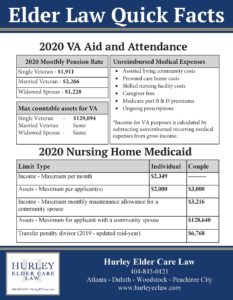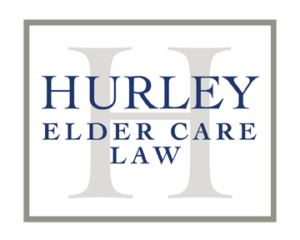Medicaid
We are wrapping up our Medicaid journey. We have been able to explore many side roads, obstacles and rarely discussed long-term care programs along the way. In our weekly blogs we have spent time talking about: *2021 Eligibility Requirements and Changes * Applying for Nursing Home Medicaid in GA * Medicaid for Single People *Medicaid…
Read MoreRing! Ring! Ring! Every January that is the familiar sound we hear as our phone rings off the hook with concerned adult children calling after they have spent the holidays with their aging parents and realize they are in need of more care. Planning for care needs becomes a necessity. Plan to check in often…
Read MoreAt the beginning of each year, there are changes in the eligibility requirements for Medicaid and benefit amounts for VA Aid and Attendance. This is because these numbers change with each Social Security change, and Social Security changes go into effect on January 1st of each year. This year, we have a 1.6% increase…
Read MoreAccording the to a recent study, 49% of Americans report that running out of money in retirement is one of their main concerns about growing older. [1] With the growing life expectancy and the increasing costs of long-term care, it is no wonder that so many Americans fear outliving their money. The amount…
Read MoreOur last blog covered the top three things you should know about Georgia Nursing Home Medicaid. Coming in at #1 was: You likely don’t make too much money to qualify for nursing home Medicaid. This confuses so many families—and even professionals. Georgia does have an income cap. By having an income…
Read MoreMedicaid continues to be the largest payer of nursing home care in Georgia. The path to getting Medicaid, though, is confusing and cumbersome. We have addressed many of the questions about Medicaid through our blog and newsletter. It’s hard to understand exactly how the rules apply to you and your family. Here are the Top 3…
Read MoreApplying for Georgia Nursing Home Medicaid can seem daunting. There are so many questions and seemingly few ways to get solid information. Hurley Elder Care Law addresses some of the most frequent questions about applying for Nursing Home Medicaid in Georgia in our most recent blog. How do you apply for Nursing Home Medicaid…
Read MoreOver the last thirteen years, we have worked with hundreds of spouses. Some are in their 80s and 90s, but many are also in their 50s and 60s. Dementia, stroke, Parkinson’s disease, and many other illnesses are not restricted to only the old-old and oldest-old. These diseases are more likely to affect those over age…
Read MoreNursing Home Medicaid pays for the majority of the cost of the nursing home for the majority of all Georgia nursing home residents. When we last checked, almost 80% of all nursing home residents in Georgia receiving long-term care (and not short-term rehab) are on Medicaid. Nationwide, Medicaid covers 6 in every 10 nursing home…
Read MoreAfter years of a stagnant personal needs allowance (it was stuck at $50/month for many years), Georgia has made increases two years in a row. In 2018, Georgia increased the personal needs allowance to $65. This year, Georgia has increased the amount to $70. This new personal needs allowance went into effect on Monday,…
Read MoreSubscribe to our blog and monthly newsletter.














